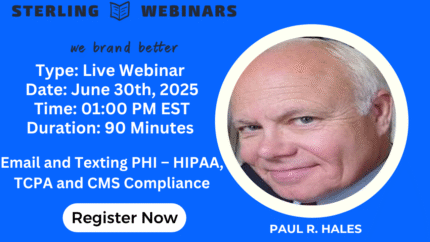

The Anatomy of a Healthcare Compliance Audit: What to Expect and How to Prepare
$199.00 – $299.00
- Type: Live Webinar
- Speaker: Jon Knight
- Date: July 17th, 2025
- Time: 01:00 PM EST
- Duration: 90 Minutes
Session Description
Strong regulatory compliance is more than a requirement—it’s a strategic advantage in today’s healthcare environment. Organizations that prioritize compliance benefit from greater financial stability, stronger brand credibility, increased operational performance, and long-term sustainability. When done right, compliance can:
-
Minimize the risk of financial penalties
-
Build patient confidence and public trust
-
Improve internal efficiency
-
Ensure continued eligibility for reimbursements
-
Reduce exposure to legal actions
-
Boost competitive edge
-
Support workforce morale and employee retention
Learning Outcomes
Foundational Level:
Gain a clear understanding of what healthcare compliance audits entail, and learn how to recognize the regulatory bodies responsible for conducting them.
Intermediate Level:
Explore the essential steps needed to respond effectively and pass an audit with confidence.
Advanced Level:
Discover how to establish an action-oriented compliance plan that prepares your entire organization to respond efficiently when an audit is launched.
Key Topics Covered
-
What initiates healthcare audits and how to recognize warning signs
-
Overview of major audit types and the agencies behind them (CMS, OIG, MACs, RACs, private insurers)
-
Understanding the full audit cycle from notification to appeal
-
Common documentation and coding errors that lead to audit issues
-
How to reduce audit risk with proactive planning and internal controls
Types of Compliance Audits
-
MAC (Medicare Administrative Contractor) Reviews
-
RAC (Recovery Audit Contractor) Investigations
-
Targeted Probe and Educate (TPE) Reviews
-
OIG (Office of Inspector General) Inquiries
-
Private Insurance Payer Audits
Phases of the Audit Process
-
Initial notification and documentation request
-
Submission timelines and format expectations
-
Medical review or claims analysis
-
Receiving preliminary results and providing rebuttals
-
Final determinations and potential appeal options
Common Triggers for Audits
-
Unusual billing trends
-
Overuse of high-complexity visit codes (e.g., 99215)
-
Outlier status compared to similar providers
-
Internal reports or whistleblower alerts
-
Random audit selection
Audit Challenges to Avoid
-
Missing or copied documentation
-
Lack of evidence for medical necessity
-
Modifier misuse
-
Misunderstanding of Evaluation and Management (E/M) rules
Case Study Highlight
Explore a real-world or simulated audit scenario to illustrate key mistakes, findings, and lessons learned. Learn what could have been done differently to avoid the issue.
Proactive Compliance Strategies
-
Implement a robust internal review program
-
Use checklists and audit tracking systems
-
Provide consistent training for clinical and billing staff
-
Standardize documentation policies
-
Establish a clear incident response protocol
Helpful Resources
-
OIG Work Plan updates
-
CMS audit toolkits
-
Industry association guidelines (AAPC, AHIMA)
-
Reporting tools within billing/coding software
Industry Context
As healthcare continues to evolve with value-based care, digitalization, and regulatory reform, staying current on compliance expectations is critical. This webinar addresses modern compliance challenges and provides real-world solutions that help you stay one step ahead.
Why Attend This Session?
You’ll walk away with practical knowledge on how to prepare for, respond to, and even prevent audits. Learn what inspectors focus on, how noncompliance happens, and how recent policy shifts affect your responsibilities. This insight empowers your team to align daily operations with regulatory expectations—before an audit takes place.
Who Should Join
This training is ideal for:
-
Revenue cycle managers
-
Practice administrators
-
Healthcare providers across all specialties
-
Clinical staff subject to compliance requirements
-
Billing and coding professionals
-
Risk and compliance managers
-
Any team member responsible for healthcare operations, audits, or reimbursement
| Session Type |
Live + Transcript ,Live ,Recording ,Transcript ,Live + Recording ,Transcript + Recording |
|---|
Related products
Physician Employment Agreements: Problem Areas that can be Landmines
| Session Type |
Live ,Recording ,Transcript ,Live + Recording ,Transcript + Recording ,Live + Transcript |
|---|
Streamlining Provider Credentialing: Strategies for Success in 2025
| Session Type |
Live ,Recording ,Transcript ,Live + Recording ,Transcript + Recording ,Live + Transcript |
|---|
Mastering Provider-Based Hospital Outpatient Billing & Supervision in 2025
| Session Type |
Transcript ,Live + Recording ,Transcript + Recording ,Live + Transcript ,Live ,Recording |
|---|
Emergency Services, Emergency Procedures and EMTALA Obligations: CMS Hospital Conditions of Participation 2025
2025 Coding Updates Series – Understand Latest Changes In Telehealth, Behavioral Health, Care Management, Pathology & PECOS
| Session Type |
Live ,Recording ,Transcript ,Live + Recording ,Transcript + Recording ,Live + Transcript |
|---|
Medicare Provider Credentialing & Enrollment 102 : Guide To Enrollment and Credentialing
| Session Type |
Live + Transcript ,Live ,Recording ,Transcript ,Live + Recording ,Transcript + Recording |
|---|
Medicare Provider Credentialing & Enrollment 101: Guide To Enrollment and Credentialing
| Session Type |
Live + Transcript ,Live ,Recording ,Transcript ,Live + Recording ,Transcript + Recording |
|---|



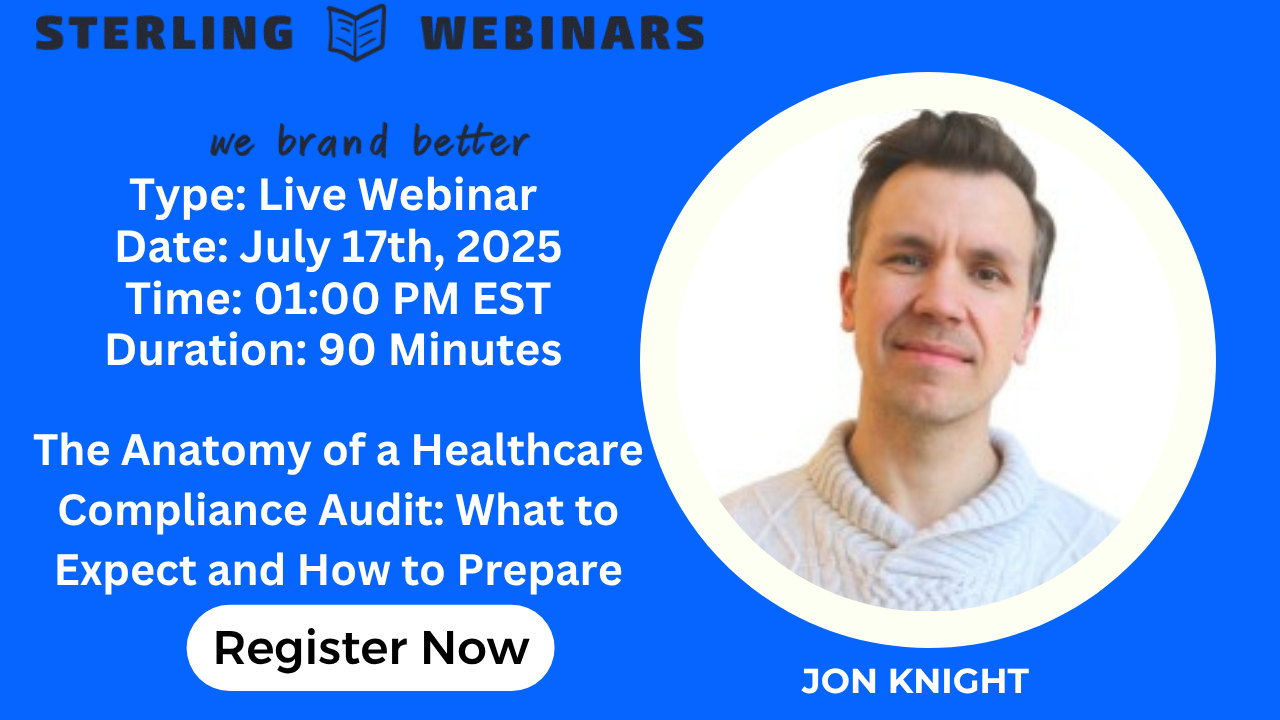


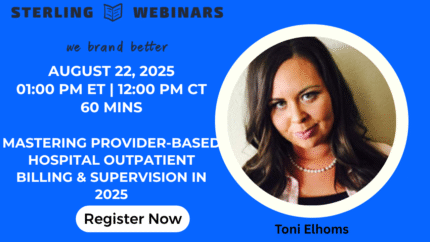

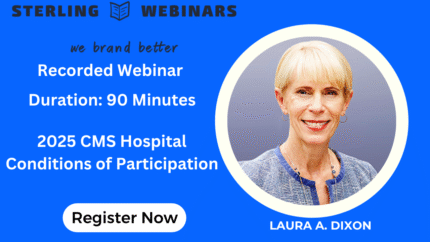

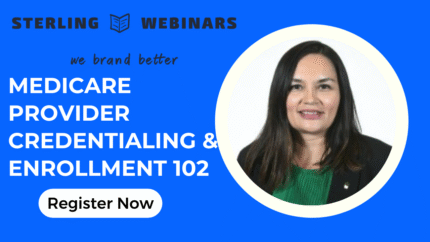

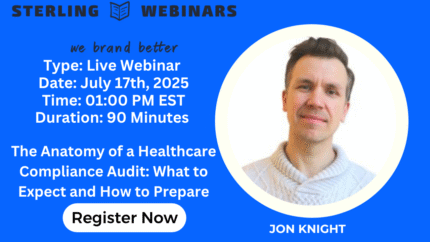
Reviews
There are no reviews yet.